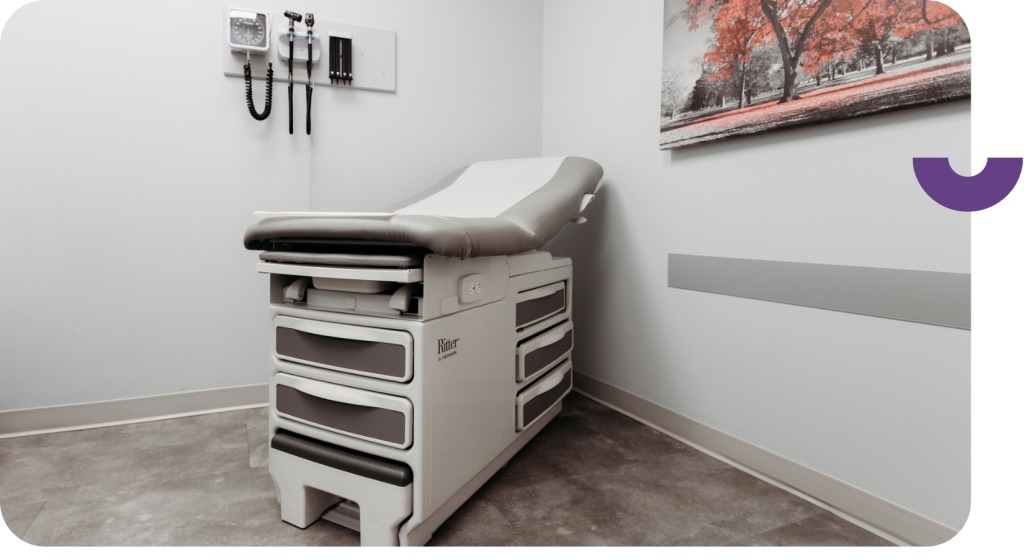Safe patient care is our priority
Anyone has the right to file a complaint about a regulated member registered in Alberta—mistakes can happen but when patient care and safety is impacted, we need to know. CPSA is a learning organization and when possible, we work with regulated members to resolve issues, so their practice can be improved going forward.
Some important details
Complaints cannot be submitted anonymously. Anyone who submits a complaint to CPSA must provide their name, and the regulated member will receive a copy of the complaint submission and be given the opportunity to submit a response.
Complaints can take a few months to several years to resolve, depending on the complexity of the issue and whether an investigation or a hearing is required.

| What is a regulated member? Physicians, surgeons, physician assistants, osteopaths, and learners (residents and medical students) who are registered with CPSA to provide medical services in Alberta.
Who is the complainant? The person who submits a complaint to CPSA about a regulated member. The complainant does not have to be the patient who received the care from the regulated member who is the subject of the complaint. |
What to expect when you submit a complaint

- As part of completing our complaint form, you will be asked to provide a detailed and clear description of your concerns, along with copies of any documentation you have in support of your complaint. You do not have to provide your medical records—we will obtain these directly from the physician, if needed. A copy of your submission will be shared with the regulated member your complaint is about.
- Your complaint will be reviewed by our team and you will be contacted if any additional information is required. If your complaint is not an issue we have the ability to address, we will respond to your submission in writing to explain why.
- We will provide the regulated member with a copy of your complaint and any relevant patient records and documentation, and ask them to provide us with a response in writing.
- CPSA’s Complaints Director will review your complaint, the regulated member’s response and any applicable records to determine next steps:
- Dismiss. There is insufficient evidence of unprofessional conduct, or the complaint is found to be frivolous or vexatious in nature.
- Expert opinion. The complainant and regulated member agree on the issue which led to the complaint, so we consult with an expert in the same area of specialty as the subject of the complaint (a family physician, dermatologist, an OBGYN, etc.) to determine whether the care provided aligns with our standards of practice.
- Formal investigation. The complainant and regulated member do not agree on the issue which led to the complaint and additional information is needed before a decision on next steps can be made. Investigative resources are limited and reserved for issues directly related to public safety, or complex situations where we will need more detailed medical record information or interviews with multiple parties.
- Resolution. Based on the information gathered, we resolve the complaint by making recommendations to the regulated member on how they can improve their practice (if applicable), and provide the complainant with an explanation of the resolution in writing.
- Hearing. If there is not an agreement on the facts or quality of care provided, or the issue relates to public safety, the complaint is referred to CPSA’s Hearing Director’s Office for a formal disciplinary hearing. Find out more about our hearing process.
Submit your complaint
The best way to submit a complaint is through our secure, online Complaints Centre. After entering in the details of your complaint and uploading any supporting documents, you will be prompted to create a username and password. This will allow you to access updates on the status of your complaint online as it progresses.
Our online complaint form will time out after 45 minutes. To ensure you don’t lose all your complaint information before hitting submit, please have the following details ready before you start filling out the form:
- The name, work/clinic address and phone number of the physician you’re filing a complaint about. You can locate these details in CPSA’s Physician Directory.
- The details of what led to your complaint, including dates, location, specifics on what you want CPSA to know about what occurred and what you would like the physician to respond to.
- What you would like to see for the outcome of your complaint (an apology, education for the physician, formal discipline, etc.).
- Names and contact information for anyone with firsthand information about your complaint. This can include nurses, clinic or hospital staff, family members and the patient (if you are filing a complaint on behalf of someone else).
- Any evidence you have in support of your complaint, such as photos, videos, emails, text messages, etc.
We understand that for some, thinking about what led you to file a complaint can be difficult. If it would help, consider taking extra time to compile all of your information in your own document, then copy it into the complaint form when you’re ready. You can also submit the details of your complaint, then log back into the Complaints Centre afterwards to upload any supporting documents.
CPSA’s Complaints Centre
Ready to submit a complaint? Or want to check the status of a submitted complaint, or upload additional information?
Paper submissions
We will also accept paper complaint submissions, however this option does not allow for accessing online updates about your complaint. A printed copy of the form can be submitted by mail or fax. We are unable to accept complaints over the phone or by email.
Mail: 2700 – 10020 100 Street NW Edmonton AB T5J 0N3. Attention: Professional Conduct
Fax: 780-424-9617
Complaint FAQs
To see more FAQs about Complaints, click on All FAQs and filter by "Complaints".
All FAQsWhen should I file a complaint?
If you feel safe doing so, you may want to consider talking to your physician first about your concerns before filing a complaint. Often, an apology or explanation can resolve any issues.
If you do not feel comfortable having a conversation with your physician, or your attempt to do so is unsuccessful, please submit a complaint to CPSA.
Is there a time limit to file a complaint?
No, but filing a complaint sooner helps make the process more effective.
Can I be sued for filing a complaint?
No. However, if you distribute copies of the complaint to others, that could be considered libel and put you at risk legally.
How can I find out whether a specific physician has a complaint history with CPSA?
If a hearing is scheduled, a notice with the charges listed will be published to CPSA’s website on the physician’s public-facing profile, which can be found via our Find a Physician tool. Each profile has a Disciplinary Actions tab, under which any hearing notices and Hearing Tribunal decisions are published. This information is also accessible via the Hearings and Discipline Decisions pages on our website.
Hearing notices are unpublished from a physician’s profile once the hearing process is concluded, while Tribunal decisions are available for 10 years. If the hearing was related to sexual abuse or misconduct (effective April 1, 2019), applicable decisions will remain on the physician’s profile indefinitely.
Will the physician know I'm making a complaint?
Yes. When we notify the physician that we’ve received a complaint, we share a copy of your complaint submission and ask them to send us a response.
Find out more about what to expect from the complaints process.
How long does the complaints process take?
We try to resolve complaints in a timely manner. However, reviewing a complaint can take months or years, depending on the complaint’s complexity, length of investigation and availability of experts (if required).
Find out more about what to expect from the complaints process.
What are possible outcomes of a complaint investigation?
- The complaint may be dismissed if evidence does not support the complaint or there is insufficient evidence to proceed.
- With consent from the complainant, we may work with the physician to make necessary practice changes.
- The complaint may progress to a formal hearing, which can result in disciplinary action against the physician.
Find out more about what to expect from the complaints process.
If I file a complaint about a physician, will I be financially compensated?
No, financial compensation is not available through CPSA’s complaints process. If you are looking for financial compensation, you should seek legal advice. Please note, you do not need to wait for our complaints process to be completed before you decide to take legal action.
What is the role of CPSA’s Complaints Director?
Under the Health Professions Act, the Complaints Director is delegated broad authority with respect to the complaints process, including but not limited to:
- Determining what action to take when a complaint is received.
- Making recommendations regarding interim suspensions or interim practice conditions.
- Conducting investigations or appointing an investigator to conduct an investigation, and making a determination about the complaint based on the results.
- Preparing written reasons if a complaint is dismissed.
- Presenting evidence and making submissions to a Hearing Tribunal.
- Making submissions at an appeal to CPSA Council or to the Alberta Court of Appeal.
The Complaints Director is not available to respond to general complaint inquiries.
Questions about submitting a complaint?
Phone: 780-423-4764
Toll-free in Canada: 1-800-561-3899
Please reach out if you have questions about submitting a complaint, or need support completing the complaint form. Emails sent through this web form are for inquiries only and are not considered formal complaints.























